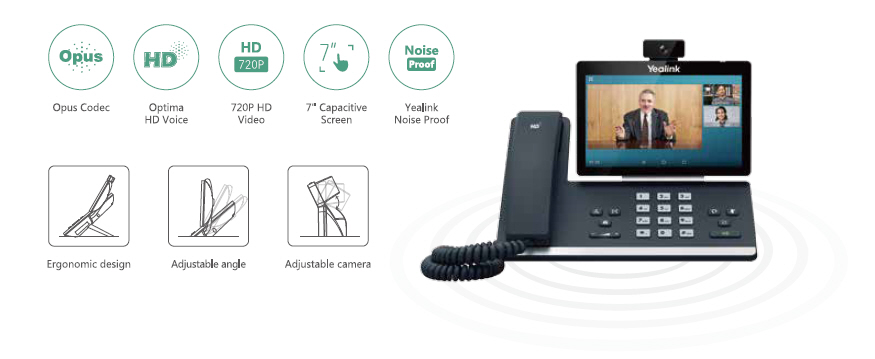Introduction
In today’s fast-paced digital landscape, local businesses are constantly seeking innovative ways to enhance communication and streamline operations. One solution that has gained significant traction is cloud-based telephony, particularly through VoIP (Voice over Internet Protocol) phone systems. This technology not only optimizes communication but also provides a plethora of features that can significantly improve customer interactions and operational efficiency.
Cloud-based telephony solutions have transformed the way businesses manage their communications, allowing them to operate without the constraints of traditional telephone systems. But how exactly are local businesses leveraging these advancements? In this comprehensive article, we will explore various dimensions of cloud-based telephony, the benefits it offers, and how local enterprises can harness its full potential.
Understanding Cloud-Based Telephony Solutions
What is Cloud-Based Telephony?
Cloud-based telephony refers to a communication system hosted in the cloud rather than on-site hardware. This means that instead of relying on traditional phone lines and equipment, businesses can utilize the internet to make and receive calls. VoIP phone systems enable this functionality by converting voice signals into digital data packets transmitted over IP networks.
The Role of VoIP Phone Systems in Cloud Telephony
VoIP phone systems are crucial to understanding how cloud-based telephony works. By leveraging internet connections instead of conventional telephone lines, VoIP allows for more flexible and cost-effective communication solutions. With this technology, local businesses can enjoy features like voicemail-to-email, call forwarding, conference calling, and much more—all without extensive infrastructure costs.
How Local Businesses Are Leveraging Cloud-Based Telephony Solutions
Local businesses recognize the importance of efficient communication in fostering customer relationships and enhancing productivity. Here’s how they are making the most out of cloud-based telephony:
1. Cost Efficiency: Lowering Operational Costs
One of the primary reasons local businesses adopt cloud-based solutions is cost savings. Traditional phone systems often entail hefty installation fees and ongoing maintenance costs. In contrast, VoIP phone systems typically involve lower https://jeffreyyphw831.mystrikingly.com/ upfront investments and reduced monthly bills.
2. Scalability: Adapting to Business Growth
As local businesses grow, their communication needs evolve as well. Cloud-based telephony solutions offer unparalleled scalability; adding or removing lines can be done with just a few clicks. This flexibility ensures that companies only pay for what they need at any given time.
3. Enhanced Features: A Richer Communication Experience
Local enterprises benefit from an array of features inherent in VoIP systems:
- Call Routing: Direct calls to the right department or individual. Automated Attendants: Provide professional greetings and options for callers. Video Conferencing: Facilitate remote meetings seamlessly. Mobile Integration: Manage calls from mobile devices anywhere with internet access.
These tools increase efficiency while providing an enhanced customer experience.
4. Improved Customer Service: Building Stronger Relationships
Effective communication plays a pivotal role in customer service. With cloud-based telephony solutions, local businesses can ensure they’re reachable at all times—whether through mobile apps or web interfaces—allowing them to respond promptly to inquiries.
5. Remote Work Flexibility: Embracing Modern Work Culture
The rise of remote work has highlighted the necessity for flexible communication tools. Cloud telephony enables employees to connect from anywhere—home offices or coffee shops—ensuring seamless collaboration regardless of location.
Benefits of Implementing Cloud-Based Telephony Solutions
1. Increased Reliability and Uptime
Cloud providers often guarantee high uptime levels due to redundant systems designed to minimize disruptions. Local businesses can confidently rely on these services for uninterrupted communication with customers and colleagues alike.
2. Accessibility: Connecting Anytime, Anywhere
With cloud solutions powered by VoIP technology, accessing business communications becomes effortless—even during travel or remote work scenarios—ensuring that no opportunity is missed due to connectivity issues.
3. Enhanced Security Measures
Security is paramount when dealing with sensitive information over voice communications. Many reputable providers implement advanced security protocols such as encryption methods and secure access controls to protect against breaches.
Challenges Local Businesses Face with Cloud-Based Telephony Solutions
While there are numerous advantages associated with adopting these technologies, certain challenges must be addressed:
1. Internet Dependency: The Need for Reliable Connectivity
A significant drawback is reliance on stable internet connectivity; outages can disrupt operations significantly if not managed properly.

2. Initial Learning Curve for Employees
Transitioning from traditional systems may present a learning curve for staff members unfamiliar with new technologies; therefore training programs become essential during implementation phases.
Integrating VoIP Phone Systems into Existing Infrastructure
Implementing a new system doesn’t mean abandoning existing tools entirely; integration plays an essential role in ensuring smooth transitions:
1. Assessing Current Communication Needs
Before diving headfirst into new technology adoption, local businesses should assess their current communication habits—the types of calls made frequently or necessary features needed moving forward—to tailor solutions effectively.
2. Selecting Compatible Providers
Not all providers offer identical services; ensuring compatibility between legacy infrastructure (if utilized) and new installations guarantees seamless operations without compromising quality standards set forth by previous setups.
Best Practices for Maximizing Value from Cloud-Based Telephony Solutions
To fully leverage these advanced technologies while minimizing risks associated with adoption processes requires careful planning:
1.Create Comprehensive Training Programs
Providing employees with thorough training sessions about using tools effectively enhances productivity levels while decreasing frustrations stemming from technical misunderstandings later down line!

2.Monitor Performance Metrics Regularly
Analyzing call data metrics helps identify areas needing improvement; keeping tabs on aspects such as response times ensures constant optimization opportunities arise throughout daily operations too!
FAQs About Cloud-Based Telephony Solutions
Q1: What is a VoIP phone system?
A VoIP phone system utilizes the internet to transmit voice calls rather than relying on traditional telephone lines.
Q2: How does cloud-based telephony benefit small businesses?
It provides cost savings, scalability for growth, enhanced features like call routing or video conferencing capabilities which strengthens customer relationships overall!
Q3: Can I use my existing phones with VoIP?
Many modern phones support SIP (Session Initiation Protocol)—a common protocol used by many vendors so compatibility exists depending upon chosen provider’s specifications!
Q4: What if my internet goes down? Will I lose service?
Downtime could affect service quality temporarily unless backup options exist such as failover protocols which reroute traffic accordingly ensuring minimal disruption occurs during outages experienced unexpectedly too!
Q5: Is it secure enough for sensitive business communications?
Reputable providers employ robust encryption methods alongside other security measures protecting data integrity throughout transmission processes actively safeguarding against potential breaches occurring externally too!
Q6: How easy is it to switch providers if needed later down road?
Switching providers typically involves migrating numbers along pre-existing contacts onto new platforms; however researching beforehand allows smoother transitions taking place thereby reducing potential frustrations encountered traditionally experienced otherwise unnecessarily too!
Conclusion
As we’ve explored throughout this article titled “How Local Businesses Are Leveraging Cloud-Based Telephony Solutions,” it’s evident that adopting cloud-based telephony offers profound advantages—from increased reliability and cost-efficiency benefits down through enhanced customer service experiences elevating overall satisfaction rates among clientele alike!

For local enterprises looking toward future-proofing operations amidst rapidly changing landscapes driven largely by technological advancements available now—it’s clear why many choose embracing innovative approaches offered via platforms utilizing power behind VOIP PHONE SYSTEMS directly influencing success trajectories positively moving forward into tomorrow's markets ahead!